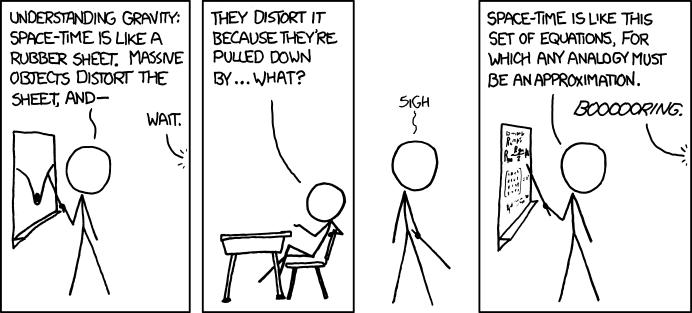Those who have read my book know my personal connection to this song, and the violent act it drove me to commit. Here is the full 13:47 minute experience for those of you who may have missed it:
(Lyrics are available here - but, wow, they're silly.)
And if you'll promise to go read the much improved version in the book, I'll share this excerpt from the original blog post recounting the 6th grade field trip in which this song was my downfall:
One of the girls in my class was the daughter of an extremely wealthy construction mogul in the area, and he sponsored a field trip to his house for our class, complete with a fleet of limousines for the students. Looking back, this makes no sense; I have no idea what the educational value was in tramping about on his huge estate looking at his antique car collection and his enormous pool. But, there we were, and on the way back to the school, someone discovered the radio.
There were several of us in the car: my friends Robert and Scott, and the class bully, Todd. Upon discovering the controls for the radio, they promptly tuned in a Top 40 station. I protested... arguments flew... and I accused them all of loving Satan. This may be where the break-down in civility occurred.
Somehow I ended up pinned to the back seat by Scott, while Robert cranked the volume. "I love this song," he crowed. It was "Thriller". You have to understand that in my mind "Thriller" represented everything that was wrong with our society at that time. It was about zombies (the undead, a tool of Satan), it encouraged dancing (think "Church Lady"), and worst of all: Michael Jackson was a Jehovah's Witness!!!
Yeah, lame. But I was so mad that I leaned up and bit a chunk out of Scott's sternum.
In retrospect, it was extremely stupid, and for so many reasons. But until it happened, I didn't realize what a completely unreasoning dogmatic prick I was growing into. Receiving four swats from the principal of the school (I pleaded with him that I was defending the faith while he tried valiantly not to laugh at me) was a wake-up call.
That wake up call I referred to was the beginning of many years of growing realization that the people who were filling my head with their religious dogma, trying to keep me on the so-called straight and narrow, didn't really believe all of the things they told me.
Sure, they said I should gird my loins with the Sword of Righteousness... but if you actually try to cut anyone with a sword, you will be the one who is wrong. If I follow through and violently defend what I have been told is a core tenet of my faith, I will be in the wrong.
Think about the implications of this, not just for a confused middle school kid who thinks he's standing up for his beliefs in a silly scuffle, but for people who do much more serious things in the name of their faith. People like Eric Rudolph, or Shelley Shannon and Scott Roeder - people motivated to commit infamously violent acts, which church communities like mine frantically denounced after they occurred. I see those people following what they see as the logical, defensible action demanded by what they believe is right.
I can't blame their church for their choices, any more than I can blame my church for the bite on my friend Scott's chest - but I also didn't arrive in that limo on that day fresh out of the ether, with no influences and no teaching.
The lesson I eventually derived from this experience was that I couldn't trust people who tried to tell me that without their message of "peace" I would have no moral compass. I couldn't rely on the Bible as a rule book, because that's not what it is. I learned to listen to my own conscience, and eventually tested my own moral code, keeping only the parts which were sound.
It would be too easy to claim that learning this is what made me an atheist - but that's not actually true. If anything, it made me a Baptist in the tradition of Roger Williams (you know, the guy so opposed to organized religion that as soon as he founded the First Baptist Church*, he left it because his conscience wouldn't let him stay in an organized religion). Biting Scott because of a Michael Jackson song forced me to re-examine my conscience, and put that in the center of my moral code.
Of course, following my conscience meant always being honest with myself, and following evidence instead of wishful thinking, no matter how uncomfortable it made me or those who cared about me. That's why I eventually had to admit to being an atheist. But the way I see it, my intentions are the same as the people who unwittingly set me on the the path that lead to violence. They didn't intend that, and I learned the lesson.
In the end, we all have to struggle to find our way, keep our head, and do the right thing. As the song says:
'Cause it's a thriller, thriller night
And no one's gonna save you from the beast about to strike
You know it's thriller, thriller night
You're fighting for your life inside a, killer, thriller tonight, yeah
*Fun fact: I'm descended from one of the original members of that church. See my post on Mightier Acorns about him!
